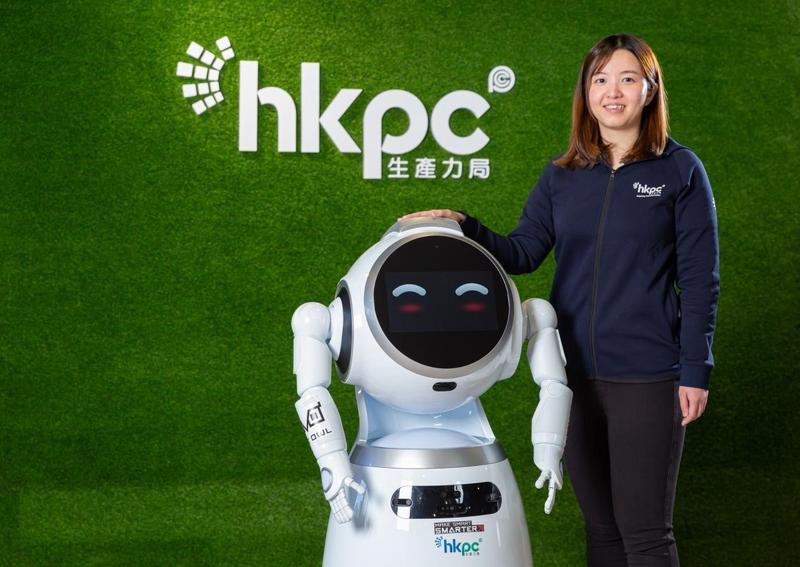HK youths drive Bay Area's endeavor to be inno-tech hub


Christy Tang Ka-ying is another young member of the HKPC who is busy with research into anti-pandemic tech products. The 29-year-old consultant has helped design various anti-pandemic robots, and the smart production line that enhances manufacturers' efficiency in the pandemic.
Tang said the robots have served at understaffed locations with large visitor volumes, such as hospitals and metro stations, to undertake simple, repetitive tasks such as answering inquiries and reminding people to wear masks.
During the work, Tang has encountered challenges that are beyond her major in mechanical engineering. She took the initiative to learn various emerging technologies, such as artificial intelligence, cloud computing, and the internet of things, to enhance her ability.
Besides attending lectures and courses offered by the HKPC, Tang took additional lessons and examinations to keep pace with the latest tech trends.
The city's manufacturers and small and medium-sized companies have also motivated themselves to adapt to the changes brought by the pandemic, such as increasing digitalization.
In the future, Tang said she and her colleagues will help businesses with smarter products applying more advanced technologies like virtual reality and 5G, and more detailed operation standards to ensure the products can be safely used.
Both Wong and Tang have noted the positive changes in the scientific and innovation environment in Hong Kong and nearby cities, after the promulgation of the Guangdong-Hong Kong-Macao Greater Bay Area development outline in 2019.
Wong said Shenzhen and other mainland Bay Area cities have seen a rapid development of EVs, especially in the battery safety and drive system. An increasing number of Hong Kong companies have also conducted closer collaboration with mainland cities in this area.
A scientific research organization which aims to boost Hong Kong enterprises' productivity, the HKPC has strengthened collaboration with various Bay Area cities in talent cultivation, supply chain upgrade, robot research, and power supply facilities inspection.
Tang said Hong Kong's innovation and technology atmosphere is getting much better, with greater financial and policy support. Many of her friends have joined related programs and competitions in colleges.
In the past three years, the Hong Kong government has invested tens of billions of dollars to boost the city's inno-tech sector. The fund was mainly used to build international inno-tech platforms, support research centers and laboratories, and foster the cross-border flow of technology talent, funds and equipment.
"Our previous generation dreamed to be professionals like financiers, doctors and lawyers. Young people nowadays are more enthusiastic about taking challenges and more aware of the power of technology. We are aspiring to use technologies to empower more industries and promote social development," Wong said.























